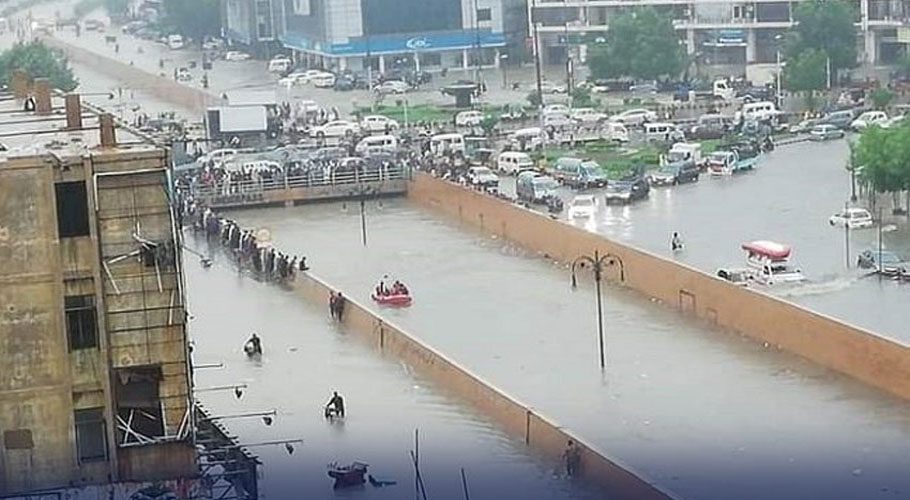![]() Follow Us on Google News
Follow Us on Google News
The mushrooming of illegal constructions and encroachments is a long-standing problem in Karachi. Chief Justice of Pakistan has taken stern action to restore the city’s grandeur and has reprimanded civic and provincial authorities on several occasions for their inaction against illegal practices.
Karachi faced devastating urban flooding last year which was blamed on the failure to clean stormwater drains due to encroachments. The authorities eventually launched a slow-paced campaign to evict the squatters who resisted the move with the support of civil society organizations. The Sindh High Court eventually issued a stay order after a plea by the affectees of the Gujjar and Orangi drains – two of the largest in the city. However, the apex court overruled the decision and ordered to continue the evictions against the slum dwellers.
Although there is no justification for occupying state land, the anti-encroachment operation has several drawbacks. More than 50,000 people will be rendered homeless and 20,000 children could be out of school. The affectees, without any legal documents, have not been provided alternate housing, while others have been promised compensation of Rs20,000 per month for two years which is insufficient to fulfill their housing needs.
A report on land displacements in Karachi has estimated that over 600,000 people have been evicted over the past two decades due to infrastructure or urban development projects but only 30% received compensation or resettlement. Urban displacement is traumatic as it is not a one-time event and has severe consequences: loss of home, livelihoods, community, and social networks along with a mental impact that leads to anxiety and uncertainty.
The right to land remains unacknowledged by the state. Instead, it is often the poor who end up paying the biggest price for the policies of the government and decisions by the courts. The state has also failed to penalize those who issued illegal allotments and is mainly focused on evictions. Instead, the owners who invested their life savings to buy their homes end up losing everything while officers who earned millions go scot-free.
It is imperative that the state provides adequate compensation to the victims of urban displacement. They are growing movements, protests, and grassroots activism against land displacements. This cannot be ignored as it can lead to resentment and eventually resistance against the state.


















